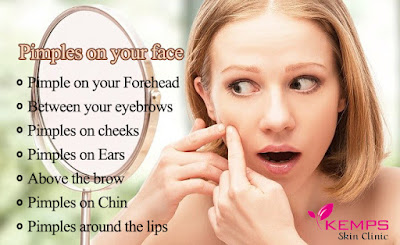Facial pigmentation may be due to a generalized process but most often is localized to the face. Melasma and actinic damage pigmentation are common and tend to be bilaterally distributed and slowly progressive. Irregularly shaped isolated lesions should be viewed with more caution, and biopsy may be required. Treatments include topical and oral medications, peels, intense pulsed light therapy and laser treatment.
Causes
When your skin produces too much melanin, the pigment responsible for the color of your skin and hair, you may notice spots of discoloration or an uneven texture. A number of different factors can influence your body’s melanin production, including:
Common causes of skin include:
- Sun exposure
- Hormonal changes
- Heredity
- Acne
- Botched skin treatments
Diagnosis:
A doctor will diagnose pigmentation simply by looking at your skin. Your medical history will help to determine any factors that may have caused the disorder.
Our doctor may use a special lamp that gives off ultraviolet light. This allows the doctor to see patterns and depth of skin discoloration more clearly.
There are various causes of hyperpigmentation, including
- Overexposure to the sun
- Heredity
- Picking at the skin
- Endocrine diseases and hormonal changes
- Certain medications such as antibiotics, cancer drugs, antiseizure
- drugs and more
- Current or recent pregnancy, or current or recent use of birth
- Inflammation and skin injuries from acne lesions, psoriasis, burns,
- Friction and even certain professional skin care treatments.
Skin pigmentation laser treatment
Some lasers can be used for the treatment of skin pigmentation and have minimal or no impact on normal skin. This is possible due to the process of selective photothermolysis. This is a term that describes how a particular laser wavelength is attracted to pigmented lesions and only minimally to the normal skin to allow selective removal of a lesion. This allows the laser to selectively disrupt the pigment with minimal or no damage to surrounding skin
Treatment of skin pigmentation


















